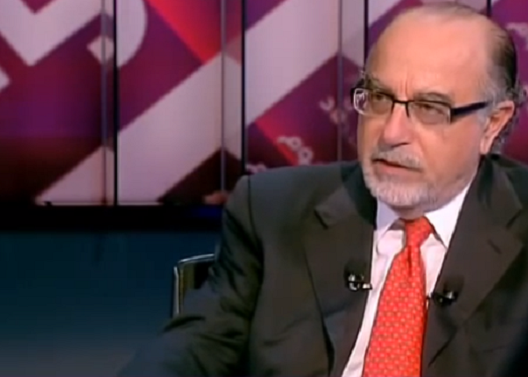 Mohamad Bahaa Chatah, former finance minister and Lebanese Ambassador to the United States, was assassinated in Beirut on December 27, 2013. It has taken me this long to write something about the passing of a friend and a paragon of human decency. When I think back about the Lebanon-related disasters that have occurred during the course of my adulthood, the killing of this fine man rates, in terms of personal impact, with the American embassy and Marine Corps bombings of 1983, the anti-American kidnapping and murder spree of the 1980s, and the assassination of Rafik Hariri in 2005.
Mohamad Bahaa Chatah, former finance minister and Lebanese Ambassador to the United States, was assassinated in Beirut on December 27, 2013. It has taken me this long to write something about the passing of a friend and a paragon of human decency. When I think back about the Lebanon-related disasters that have occurred during the course of my adulthood, the killing of this fine man rates, in terms of personal impact, with the American embassy and Marine Corps bombings of 1983, the anti-American kidnapping and murder spree of the 1980s, and the assassination of Rafik Hariri in 2005.
Those who were privileged to know Mohamad Chatah knew that they were in the presence of that rarest of human beings: a person who took his mission and his duties—but not himself—with utter seriousness. He had an infectious sense of humor and was disarmingly self-deprecating. In his official capacity he was focused and tenacious, but always polite and conciliatory. A trained economist (University of Texas) who served with distinction in a senior International Monetary Fund capacity, Mohamad Chatah knew his business.
Although he was a trusted member of the Saad Hariri-led Future Movement, Mohamad Chatah projected an image and reality of political independence and Lebanese patriotism. A Sunni from Tripoli, he had not a sectarian bone in his body. He cared about all of Lebanon and all Lebanese. As finance minister he struggled with and decried Lebanon’s essential statelessness and political dysfunction. Frustration was his closest professional companion. And yet he never gave up and never lost a bedrock sense of humor that enabled him to cope with the most daunting and unreasonable of political circumstances.
Mohamad Chatah personified the best aspects of Lebanese political culture at a time when those positive values—tolerance, non-violence, generosity and dialogue—are under increasing assault. It is understandable that those who knew Mohamad and loved him for who he was and what he stood for would be astonished that such a decent, tolerant, and conciliatory human being would be the target of such savagery. Yet it is precisely who he was and what he represented that made him the most lucrative of targets. He was the kind of man around whom Lebanese of good will could rally. He was, in short, a threat of potentially incalculable danger to those who are in the fulltime business of killing Lebanon.
For those in Lebanon and Syria who bring a full portfolio of criminal behavior to the practice of politics, it is never enough and hardly possible to make a case for one’s worthiness. The real task, therefore, is to eliminate opponents who are competent, credible, and capable of reaching across sectarian barriers; to conjure an opposition just as criminal, just as loathsome, and just as sectarian as oneself. To be able to say, “They are as bad or worse than me” is as elevated as the discourse gets for some Levantine political actors. And they work to make such an argument attractive to the credulous.
Mohamad Chatah was therefore, in retrospect, the most lucrative of targets. His decency and his dedication to Lebanon made him so. There are also other Lebanese political figures in both major camps and among independents who have demonstrated, over time, their commitment to all of Lebanon and to the positive elements of a very complex and often problematical political culture. They should take care. For they too are targets. Indeed, the Lebanon Mohamad Chatah loved and served is the target.

